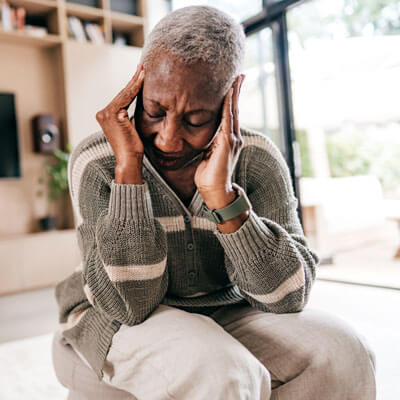 Concussion is a type of traumatic brain injury that can occur as a result of a blow to the head or a sudden acceleration or deceleration of the head. It can cause a range of physical, cognitive, and emotional symptoms, and without proper treatment, can lead to long-term health problems. This is where concussion Therapy or Concussion Physiotherapy comes in, providing a crucial role in helping you to recover from concussion and return to your normal activities.
Concussion is a type of traumatic brain injury that can occur as a result of a blow to the head or a sudden acceleration or deceleration of the head. It can cause a range of physical, cognitive, and emotional symptoms, and without proper treatment, can lead to long-term health problems. This is where concussion Therapy or Concussion Physiotherapy comes in, providing a crucial role in helping you to recover from concussion and return to your normal activities.
Symptoms of concussion can include physical symptoms such as headache, dizziness, balance problems and nausea, as well as cognitive symptoms like memory problems, confusion, and difficulty concentrating. Emotional symptoms can include irritability, anxiety, and depression. These symptoms can last for a few days or weeks, but in some cases, they can persist for much longer.
In children, concussions can be especially concerning because their brains are still developing, and they may be more susceptible to the effects of head trauma. If a child shows signs of a concussion, it is important to seek medical attention promptly. The child may need to be monitored for a period of time to ensure that there are no long-term effects from the injury. To help reduce the risk of concussion, children should wear protective gear when participating in sports or other activities that carry a risk of head injury.
Concussions in children can be caused by a variety of factors, including:
- Falls: Children often fall and hit their head, especially when they are young and learning to walk.
- Sports: Contact sports such as football, hockey, and soccer can lead to concussions if the child takes a hard hit to the head.
- Car Accidents: Children who are involved in car accidents may suffer a concussion if their head hits an object or the window.
- Physical Abuse: Children who are physically abused may suffer a concussion if they are hit in the head.
- Bicycle Accidents: Children who ride bicycles without wearing a helmet are at risk of suffering a concussion if they fall and hit their head.
It’s important to take all head injuries seriously.
A Concussion physiotherapist can assess an adult or child’s symptoms and develop a treatment plan that is tailored to their specific needs. Improving physical symptoms can be achieved through exercises and manual therapy, such as neck strengthening and balance training, to help reduce dizziness and improve coordination. Addressing cognitive and emotional symptoms can be done through various techniques such as relaxation exercises, mindfulness, and cognitive behavioral therapy.
Best practices for concussion physiotherapy include a gradual return to physical activity, School and Sports while working with a trained Concussion physiotherapist. This can help to ensure that the individual is receiving the best possible care and is able to make a full recovery.
Concussion therapy refers to a range of rehabilitation and treatment options for individuals who have experienced a concussion, a mild traumatic brain injury (TBI) caused by a bump, blow, or jolt to the head.
The type and duration of concussion therapy will depend on the severity of the injury and the individual’s symptoms, but may include the following:
- Rest: It is important for individuals with a concussion to get plenty of rest, as this can help the brain recover and reduce symptoms such as headache, dizziness, and fatigue.
- Cognitive rest: This may involve limiting activities that require a lot of mental effort, such as reading, using a computer, or playing video games, until symptoms improve.
- Concussion Physiotherapy: Physiotherapy can help individuals with a concussion to regain strength, coordination, and balance. This may include exercises to improve neck and back strength, as well as balance and coordination training. It is important to work with a concussion physiotherapist to determine the best concussion therapy plan for the individual. Treatment are tailored to the individual’s specific needs and symptoms, and may be adjusted as symptoms change over time.
- Cognitive therapy: Cognitive therapy can help individuals with a concussion to improve cognitive function and reduce symptoms such as memory loss and confusion.
In conclusion, Concussion Physiotherapy is a crucial part of the recovery process for individuals who have suffered a traumatic brain injury. At Helios Physiotherapy and Rehab we offer Concussion Therapy. The goal of Concussion therapy is to reduce symptoms, improve functions and quality of life for the individual. By addressing physical, cognitive, and emotional symptoms, our Concussion therapist can help you to return to your normal activities and prevent long-term health problems. If you are experiencing symptoms of concussion, it is important to seek concussion treatment as soon as possible to ensure the best possible outcome. Please call or book your appointment online at www.heliosphysiotherapy.ca
